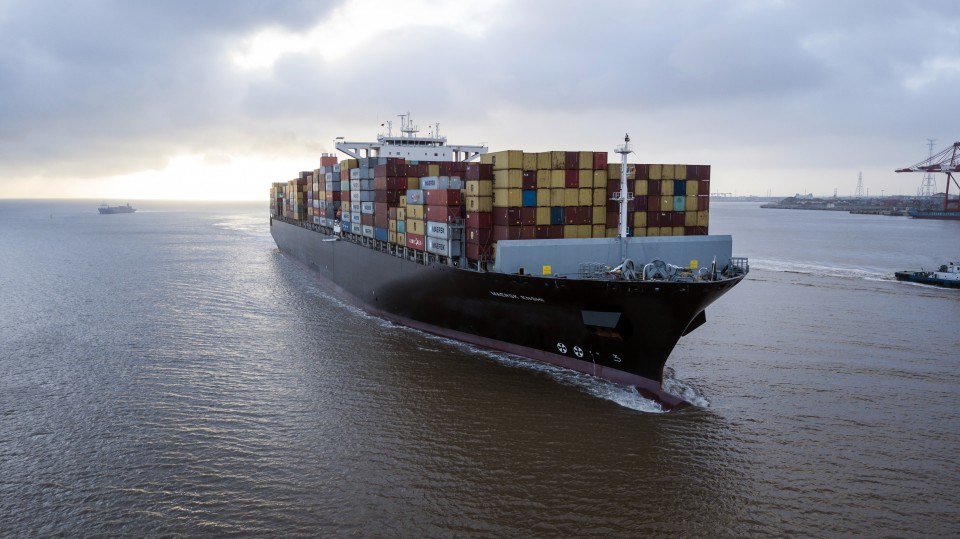Nathan Gardels is the editor-in-chief of Noema Magazine. He is also the co-founder of and a senior adviser to the Berggruen Institute.
Dani Rodrik is a Turkish economist and professor of international political economy at Harvard University. His latest book is “Straight Talk on Trade.” He recently spoke with The WorldPost’s editor in chief, Nathan Gardels, about what needs to change in global trade.
WorldPost: The backlash against globalization seems, in the end, not to be about the comparative advantages of trade but about the overriding of domestic policy choices by a global tribunal, the World Trade Organization (WTO), which as you put it, reaches too far into the democratic sovereignty of nations, each with their own economic models, and thus into the well-being of their citizens.
How did this come about? What were the forces behind it? How did the global trade regime change from the earlier days of the General Agreement on Tariffs and Trade (GATT), the WTO’s predecessor, which was more acceptable to sovereign nations?
Dani Rodrik: The 1990s were, I think, a watershed period where we moved into a different kind of globalization, very different from the previous version in the immediate postwar period. I have called this “the push into hyperglobalization.” In finance, this phenomenon was marked by financial globalization — or the normalization of free capital mobility. In trade, it was the creation of the WTO. Essentially, globalization went from being a means for national economic prosperity to becoming the end — with national domestic priorities having to adjust to globalization’s needs instead of vice versa.
We got there for a number of reasons. First, the world trade regime became a sort of victim of its own success. World trade and investment increased by leaps and bounds under the GATT. It seemed reasonable to move one step further.
Second, there was a major ideational transformation: the Thatcher-Reagan revolution, market fundamentalism, neoliberalism, etc. It seemed natural to want to free up more areas of the economy to international trade.
Third, there were, as there usually are, specific vested interests at play. Financial institutions, multinational corporations and big pharma in particular wanted rules that enabled greater market access and greater protection of their interests. So that is what we got by and large.
WorldPost: The main point of contestation between the United States and China is over China’s state-subsidized efforts to conquer new technologies, from artificial intelligence and robotics to semiconductors. The Chinese fear that they will once again fall behind the technological edge, as in the Qing and Ming dynasties, which led to their colonial humiliation by Western powers.
Why should such a strategy not be allowed in a global trading regime?
Rodrik: I think it should be allowed. I am in favor of allowing countries much greater latitude in the conduct of industrial policies. When they succeed, this is good not only for the countries themselves but also for other nations because it enables economic growth and hence, greater trade opportunities. When they fail, the costs are borne primarily by domestic consumers and taxpayers. I think the case for international rules and disciplines to limit the use of industrial policies is a lot weaker than people realize.
There are of course cases where you need international rules. There are instances of true beggar-thy-neighbor policies. Ironically, the most important such cases are today completely outside the rules, and we are hardly talking about them. Global corporate tax havens are one clear example. Another is Germany’s huge trade surplus. If we are really concerned about beggar-thy-neighbor policies, we should look beyond what the WTO focuses on.
WorldPost: If the WTO was a bridge too far, leading to “hyperglobalization,” what should a global trading regime look like then? One that allows for the diversity of economic models but still enables trade among nations to flourish?
Rodrik: I have written at length about this in my books “Straight Talk on Trade” and “The Globalization Paradox.” For concreteness, think of the old GATT system. It was a very thin and unambitious set of rules, and yet it worked extremely well. I think the secret to its success was that the old regime understood you need to provide countries with much greater policy space. A healthy international economy requires healthy domestic economies and policies.
These days, people worry that we will end up on a protectionist slippery slope if you weaken the international rules. But we have systematically underestimated the risk on the other side, which is that when you make the rules unrealistically tight, you also provoke a backlash. That is what we have today. And paradoxically, we are likely to get more protectionism today than we were under the old GATT regime.
WorldPost: Is the Trump administration’s approach to blowing up the WTO useful then? Is there a better way to roll back hyperglobalization that is less disruptive?
Rodrik: The Trump administration does not have a coherent trade policy or a systematic approach to reforming the international trade regime. Its approach is purely unilateralist and mercantilist. What this means is that the administration wants greater freedom to do whatever it wants, but it also wants to restrict what other countries, such as Mexico and China, can do. It wants both greater market access abroad and less market access to others at home. This makes little sense, and it cannot work. So no, I don’t have any hope that this administration will find a better way to deal with globalization.
This was produced by The WorldPost, a partnership of the Berggruen Institute and The Washington Post.


